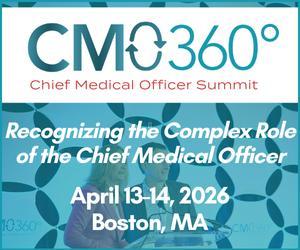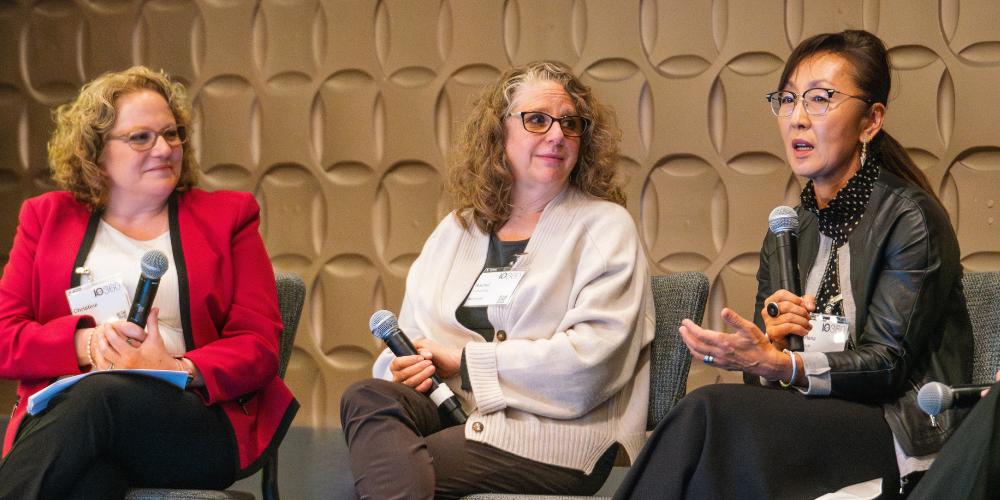Archive Highlight: How Genomics Is Advancing the Next Generation of IO at the Cleveland Clinic
Timothy Chan, MD, PhD, speaks about how the Cleveland Clinic is bridging genomics and precision IO. Dr Chan is Director of the Center for Immunotherapy and Precision Immuno-Oncology at the Cleveland Clinic.

What is your work at the Cleveland Clinic?
I arrived here to take on the role of Chair of the Center for Immunotherapy and Precision Immuno-Oncology. My role is to develop programs that allow us to build a cadre of immuno-oncology investigators on the basic side, and also to build immunotherapy translational groups for therapeutic development leading into early phase trials. That spans strategies from vaccines to cell therapy approaches. I have a few other roles here: I’m the Director of the Immuno-Oncology program, which is one of the components of the Case Comprehensive Cancer Center, and I also co-direct the National Center for Regenerative Medicine, which is the big cell therapy institute in Cleveland.
You’re a leader in using genomics for precision medicine and immunotherapy. Can you describe your interest in that?
There is a lot of momentum in science behind understanding cancers and understanding why different patients benefit from one type of treatment or the other. I work in the space of using genetics and molecular markers to understand why certain tumors behave the way they do, and why certain tumors respond to certain drugs and why others are resistant. This is a way for practitioners, scientists and doctors in the field to match patients with the best drugs that they’re likely to respond to. And you see a lot of things coming out: a lot of new types of molecules and new types of drugs that take advantage of targeting specific mutations and specific processes that go awry. Profiling tumors has been able to not only allow folks to match drugs with tumor type, but also reveal new targets as well.
"I work in the space of using genetics and molecular markers to understand why certain tumors behave the way they do, and why certain tumors respond to certain drugs and why others are resistant."
What is the technology that has enabled this more advanced screening of the genome?
The technology was developed about 15 years ago, and it’s becoming better and better. Around 2005 or so, there started to be a big increase in the ability for us to sequence DNA.
And this was really termed the next-generation sequencing revolution. Before, this type of work was very painstaking and slow. Now the platforms are getting faster and better.
And so, with improving technology driving this, and the ability to sequence faster and cheaper, we are now able to make deep genomic analysis part of clinical practice. The other consideration, which is equally as important, is our increased understanding of why we need to sequence: the understanding that there are genes and processes that are driving the cancers and that there are genes you can target that allow you to kill tumor cells and not normal cells.
These principles combined together to set up what we have now: the ability to identify certain changes that we know about, married to a technological revolution that is accelerating our ability to be able to sequence patients and tumors in the clinic.
A little over 10 years ago the technology was there, and folks believed in it, but there were relatively few markers. Insurance really didn’t reimburse. People asked “Is this really actionable?” Nowadays the knowledge has caught up and the technology has continued to improve, so that this is really part of the standard of care. Our own work that discovered that tumor mutation burden and DNA repair pathway mutations like MSI identify cancers that will respond to immune checkpoint therapy has opened up this field. It led to the first tumor agnostic FDA approvals for any cancer therapy.
"With improving technology, and the ability to sequence faster and cheaper, we are now able to make deep genomic analysis part of clinical practice."
Is all of this within the center itself: leveraging insights from sequencing into developing molecules or identifying pathways and targets?
Yes; I spent almost 15 years at Memorial Sloan Kettering Cancer Center before coming to the Cleveland Clinic about a year and a half ago. My job here is relatively similar to what I was doing there, just on a much larger scale.
We are developing technologies, research and programs here, in the cancer center, to make best use of this type of information.
We recently launched a big program to broadly sequence the whole exome – all of the important coding areas of the cancer genome – on every patient with a solid tumor that needs sequencing. We are really the first in the country to do this. And the idea is to be able to comprehensively identify the markers and the processes in the genome that go awry, with the purpose of being able to assign the best treatments for these patients.
Many times, cancer patients have already exhausted first-line therapy or second-line therapy, and there’s not much left. you have to really look deeply and we hope our program will help patients extend hope. And with the whole exome sequencing, we can identify different trials going on that, potentially, will work best with them, given our knowledge of the biology and the type of mutations in the context of basket trials.
You’ve spoken about how true precision immuno-oncology could create, in effect, N of 1 trials for patients. How do you think genome sequencing could change the future of clinical trials?
N of 1 trials are a different paradigm; it’s precision oncology taken to the extreme. Basket trials are about organizing alterations into distinct baskets. Each individual tumor is different from another patient’s tumor, but often they actually have similar processes; it’s just that you have to match them. Typically, how clinical trials are done in oncology is that you run these big trials that are for one disease site. For example, you run a big trial for colon cancer. And you use a process that’s slow and cumbersome, and takes several years. And if you have a certain drug that targets a certain pathway, let’s say, like a BRAF.
And you know that BRAF is actually mutated in 20 different types of cancers. Are you going to individually set up 20 different trials? Maybe not. It might be a more efficient way to set up a basket trial, where you put a smaller number of patients together, all with the same genotype, and you look for a signal.
Because if your hypothesis is that that mutation actually is responsible for allowing that patient to respond to your new drug that targets that mutation, then this may be a quicker, more efficient way to be able to identify where there’s a signal.
It is not a guarantee that every tumor type is going to behave the same. But again, that’s a quick way for you to sort that out and save the time and money of putting together big trials that may cost a lot more and may not yield the same information.
"Our own work that discovered that tumor mutation burden and DNA repair pathway mutations like MSI identify cancers that will respond to immune checkpoint therapy has opened up this field."
You mentioned the next generation of precision oncology. What is the hope for future applications of the work you’re leading right now?
What I’m talking about is very systematically being used in the clinic now. And as we move forward, our work, and the work of many others, are expanding on what we know about what makes tumors sensitive or resistant to immunotherapy.
Resistance is very important to understand, because those are our next targets and we’re looking at ways to deal with those genes that may be causing resistance. Right now, immunotherapies alone can definitely be improved. Most patients don’t respond, but new combinations are being put together where in many tumor types, the majority of patients will respond. We’re actually getting most patients to respond now in some tumor types, with these types of combinations, which would have been unheard of only a few years ago. This process of discovery, then testing, and so forth, continues. We’re not curing everybody, yet, and there’s a lot of nuances to how cancers can get around therapies. We’re using comprehensive profiling. We’re using basket trials to give access to patients more quickly and to potentially life saving therapies.
Another exciting program revolves around mutations: we’re working on making treatments and vaccines against these mutations. This is something that is actually coming into vogue, especially with RNA vaccines and the COVID vaccination efforts around the world. The COVID vaccines came onto the scene so quickly because there were years of development in the cancer space before then. There is a lot of excitement around vaccines, because of the fundamental ability to target certain mutations.
You could imagine that you have a patient with cancer who takes a drug and the tumor becomes resistant, because that’s what tumors do. If you can use a vaccine with the initial therapy, one could imagine the ability to prevent the genetic mutations that we know are going to cause resistance.You could prime the immune system to fight off resistance.
Are there any other research topics you’re working on that you can share with us?
We’re working on understudied tumors, especially pediatric tumors. These are tumors that big companies sometimes don’t focus so much on because there’s not a huge market share. We have a project here making immunotherapies for Ewing’s sarcoma and different pediatric sarcomas. And to me, that’s very exciting because progress in children’s cancers can sometimes go very slow, because they’re not as common as, say, breast cancer or prostate cancer. But we’re excited about that. I’m putting in resources to try to develop vaccines and different immunotherapies for some of these rare tumors because there’s such a medical need for them.
For more information on IO360º Summit, visit io360summit.com.









